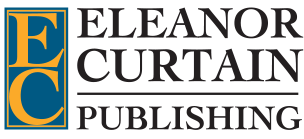Metacognitive Learning
Teachers and students use the talk-aloud and the think-aloud approaches, as well as activating prior knowledge and undertaking formative assessment, to support metacognitive learning.
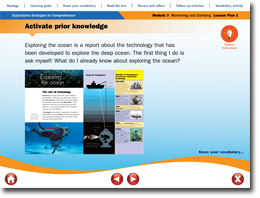
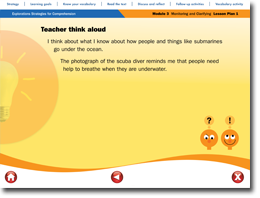
What is Metacognition?
Metacognition is developing
In the context of reading comprehension, metacognition involves students knowing the strategies and skills used by skilled readers to make sense of the text they read, learning how to apply these independently and as needed to support their own reading, and reflecting on what they have learned in order to be able to self-monitor and further develop their own reading comprehension.

How does this resource support Metacognitive Learning?
Talk aloud
Students are actively encouraged to talk about their thinking, understanding, and learning, both during reading and after reading. Talking aloud during reading enables the teacher to monitor the students’ developing comprehension of text. Talking aloud after reading provides an assessment of how effectively students have understood the main actions, ideas, and themes in the text.
Think aloud
A slightly higher metacognitive
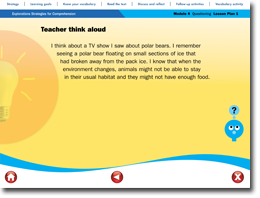
Activating prior knowledge
Activating prior knowledge is critical in helping a student to understand and remember the content of what they read.
During reading comprehension instruction, teachers deliberately provide a prior knowledge activity to find out what students know about a topic before they read about it, to engage students in thinking about the content and structure of the text before reading, and to prepare them for comprehending the key ideas in the text.
The prior knowledge students have will be drawn from a range of personal experiences, including cultural experiences, social experiences, and academic experiences, developed through what they have read, seen,
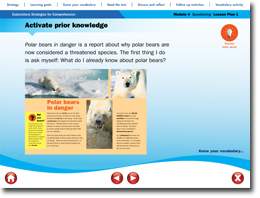
When students know very little about the content or topic, teachers can choose to adjust instruction in one of the following ways:
- Discussing the title and the photographs in the text to develop knowledge of some of the main ideas before reading
- Providing instruction on some of the key content-specific vocabulary before reading in order to prepare the students to understand the content
- Reading the text aloud to the students before commencing the lesson so that students have some idea of the gist and content of the text prior to instruction
- Taking the lesson over two or more reading sessions to spend greater time on developing knowledge of the main ideas and content of the text
In this resource, suggestions for activating prior knowledge are linked to the content of each of the texts.
Formative assessment
Through formative assessment, students learn to know the goal of each lesson, and what they need to know and do to be successful. They also learn to know if they are achieving the learning goals of the lesson and if not, what is causing the difficulty.

